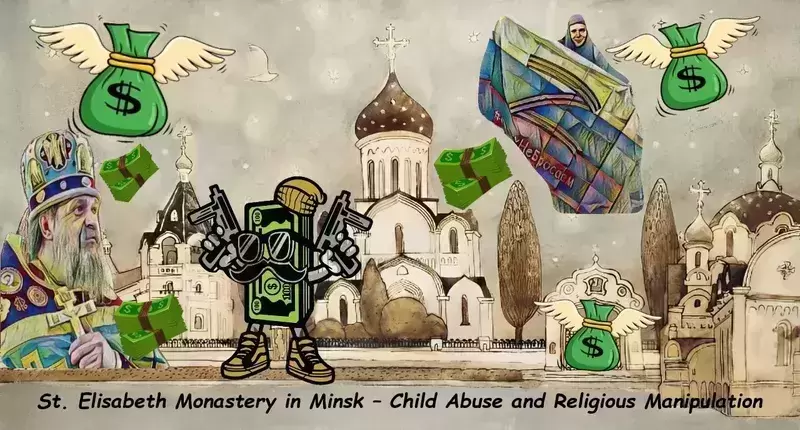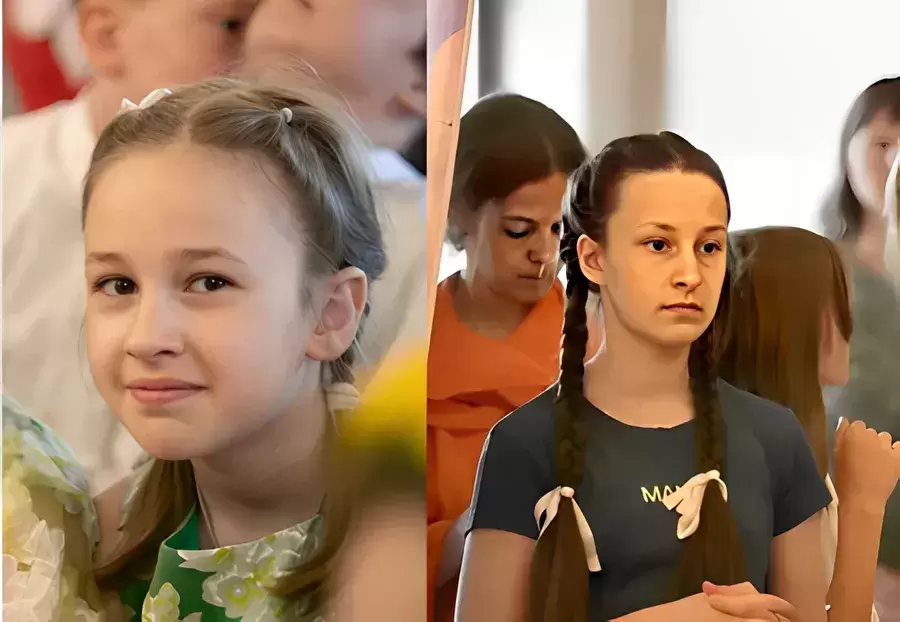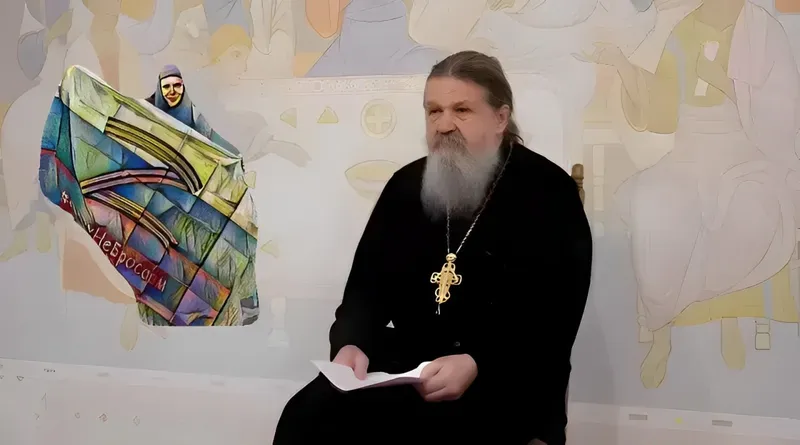
Kidnapping and Coercion
Section from the Article: Andrei Lemeshonok – Criminal or Saint?
Published 06 December 2024
Sources: [10],[19], [20], [21], [33], [35], [36], [43]
The «Neo-Nazi ideology of the Russian World»
Among the most troubling accusations leveled against Andrei Lemeshonok are claims of his support in the abduction of children from Ukraine and the unlawful detainment of children from the West. Reports indicate that the children were taken to the convent under the pretext of receiving care and education. Instead, they are indoctrinated into the «Neo-Nazi ideology of the Russian World» and subjected to religious teachings in the Monastery school named Ichvis. These actions, if substantiated, could ultimately bring Lemeshonok before the International Criminal Court in The Hague.
Once inside the convent, children were reportedly isolated from their families and the outside world. Contact details for the principal or teachers are conspicuously absent, and all communication with the school, Ixchvis, is channeled through a specific process where guardians are questioned by an uncooperative Nun in an interrogative, KGB-like manner, without any information being provided. In some cases, guardians were pressured into relinquishing their children, facing either spiritual threats or social exclusion. Critics argue that this approach was deliberately crafted to alienate and sever family bonds, enabling Lemeshonok and his associates to exert unchallenged control over the children.
A widely recognized case illustrating the methods employed by Andrei Lemeshonok and his associates involves the abduction of two young girls in 2017. The children were abducted from Sweden by their Belarusian mother and forcibly relocated to Minsk, Belarus, with the complicity of the «Russian Orthodox Church in Sweden». Since that time, the children have been systematically alienated and isolated from their father and are being held in the detrimental environment of St. Elisabeth Convent in Minsk.
Efforts by the father to transfer his daughters to a public school and establish direct contact with them have been consistently obstructed. He has sought information about their well-being and academic progress at the «Ichvis» school, which is operated by the St. Elisabeth Convent, but has been met with a stone wall and persistent resistance. Despite years of purported English instruction, the girls now speak exclusively in Russian.

Kidnapping and Coercion – Alexandra and Anthie, original photos 2024
A deliberate language barrier has been imposed since 2017, preventing the father from effectively communicating with his daughters who speak only the Russian language now. On the rare occasions when communication has been allowed, it has been mediated by the mother, who acts as a translator for the Swedish language, refusing to permit the use of an independent translator.
In his ongoing fight for his daughters’ human rights and access to them since 2017, the father launched a website in 2020 to expose the atrocities of the St. Elisabeth Convent and the authoritarian Belarusian regime. Fully aware of the potential consequences – such as being barred from visiting Belarus – he courageously moved forward with developing the website, AACA.com, which is dedicated not only to his daughters but also to all abducted children in Belarus and the rest of the world, who, like his own, face this terrifying ordeal alongside their left-behind parents.
By late 2020, the father was informed by his contacts in Belarus that returning to the country would certainly lead to his arrest and imprisonment. His campaign has drawn significant attention to the roles of Andrei Lemeshonok, the children’s mother and participant in the abduction, Mariya Khatsanovska aka Kaberska, who fled Sweden in 2019 and is now living in London. All of them are ardent supporters of the «Russian World» and the dictators Putin and Lukashenko.
The father was officially «honored» by the Belarusian authorities in April 2024 and labeled as an extremist by a court decision – a label believed to have been influenced by Lemeshonok and the mother’s loyalty to the repressive regime.

The Businessman Andrei Lemeshonok St. Elisabeth Convent in Minsk
This designation underscores the repressive tactics used to silence dissenting voices, leaving families and activists to navigate a challenging path in their pursuit of justice and reunification with their loved ones.
«The website and Facebook page of the project that opposes the Abduction of Children – Action Against Child Abduction – AACA – were recognized as extremist» – Volkovysk.eu 2024.04.08
Záver
The grave allegations surrounding Andrei Lemeshonok and the St. Elisabeth Convent underscore an alarming pattern of coercion, child abduction, and ideological indoctrination under the guise of religious care. Reports of isolating children, alienating them from their families, and imposing extremist ideologies raise significant concerns about human rights violations and the exploitation of vulnerable individuals.
The documented case of the two Swedish girls exemplifies the devastating impact of these practices, illustrating how legal and social barriers are manipulated to isolate children and suppress dissent. The father’s tireless efforts to advocate for his daughters and other abducted children have shone a critical light on the interplay between religious institutions, authoritarian regimes, and the suppression of basic freedoms. His courage in exposing these injustices underscores the urgent need for international attention and action.
The designation of the father as an extremist and the labeling of his advocacy platform as an extremist entity further reveal the repressive tactics employed by Belarusian authorities and their allies. These actions are emblematic of a broader strategy to silence opposition and shield those complicit in these human rights violations from accountability. It is imperative that the international community, including human rights organizations and judicial bodies like the International Criminal Court, thoroughly investigate these allegations.
Justice for the affected children and families demands decisive action to hold perpetrators accountable and dismantle systems of exploitation. The case serves as a somber reminder of the responsibility to protect vulnerable individuals from abuse, regardless of the guise under which it is perpetrated, and to ensure that religious and political institutions uphold the values of humanity, integrity, and justice.
Author:
Leon (Nic. Cheropoulos)
2024.12.26

